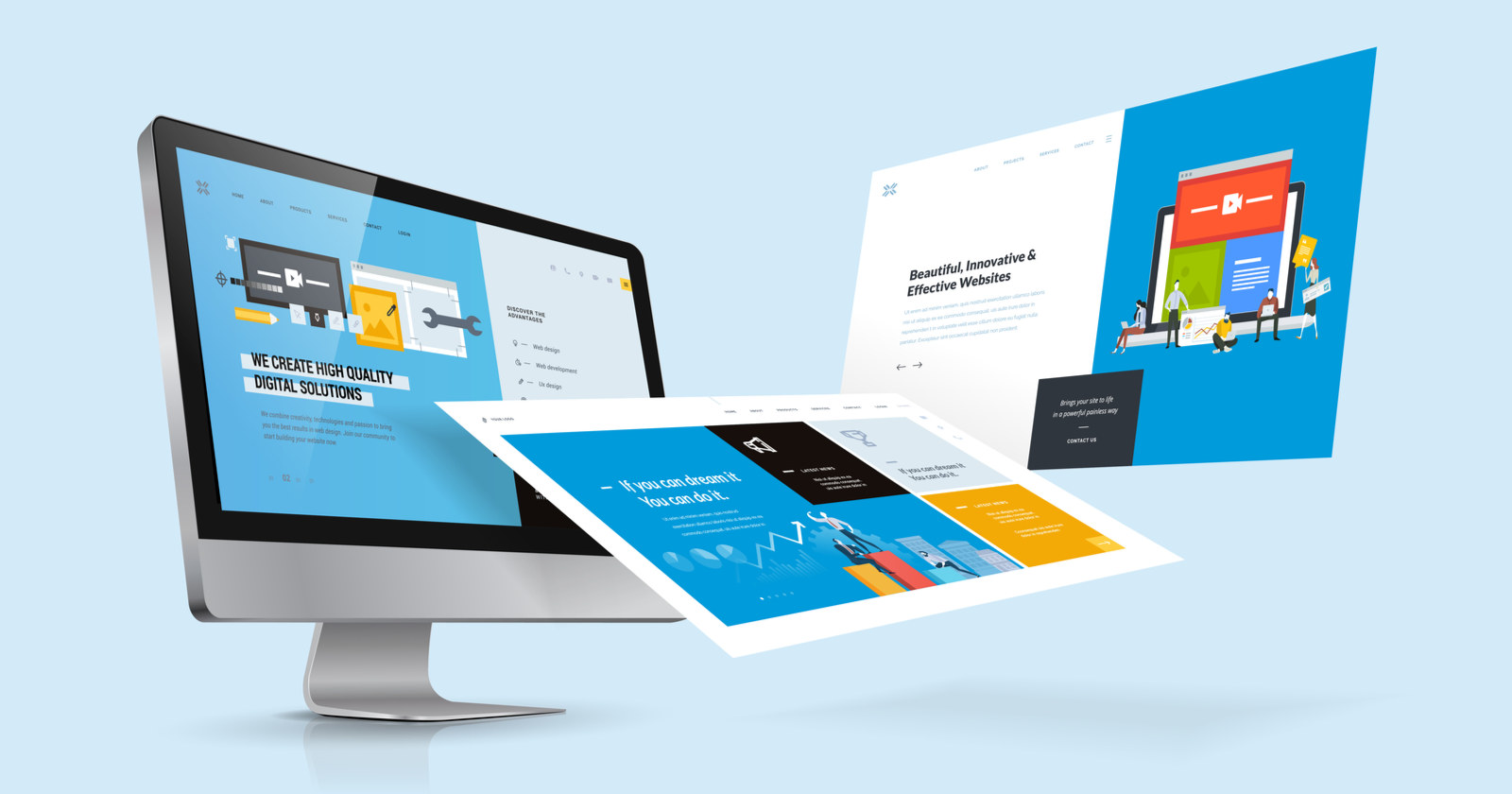Exactly How Responsive Website Design Influences User Experience Across Instruments
Responsive website design plays an important duty in forming customer experience across a multitude of devices, as it allows sites to fluidly adjust to differing screen dimensions and resolutions. This flexibility not only enhances navigation but likewise significantly boosts visual allure and functionality, especially for mobile individuals. The implications of responsive layout expand past simple aesthetic appeals and usability; they touch upon elements such as loading rate and Search engine optimization performance. Comprehending these interconnected aspects increases vital inquiries regarding how businesses can utilize receptive style to optimize customer interaction and fulfillment.

Relevance of Responsive Style
As individuals significantly access sites on a range of tools, the importance of responsive style ends up being extremely important. Responsive style makes sure that an internet site's format and content adapt perfectly to various display dimensions, alignments, and resolutions (Web design in Penang). This flexibility is crucial in today's digital landscape, where individuals engage with material on mobile phones, tablets, laptops, and desktops
The importance of responsive style prolongs past plain aesthetics; it enhances usability and accessibility, providing users with a consistent experience regardless of the device used. A well-implemented responsive design decreases the demand for customers to zoom or scroll exceedingly, streamlining navigation and improving overall satisfaction.
Additionally, receptive layout is necessary for seo (SEO) Online search engine, such as Google, prioritize mobile-friendly websites, meaning that a receptive website is most likely to place greater in search engine result - Web design in Penang. This not only boosts visibility however also drives website traffic and involvement
Benefits for Mobile Users
Mobile users experience distinctive benefits when engaging with responsive web sites. Primarily, these websites are designed to adjust perfectly to various display sizes and alignments, making sure an optimal watching experience no matter the tool in usage. This adaptability boosts usability, enabling customers to navigate via content easily without the need for extreme scrolling or zooming.
In addition, receptive style eliminates the frustration of coming across non-optimized websites that might lead to distorted designs or missing out on functionalities on mobile tools. Users profit from a consistent interface, which cultivates familiarity and minimizes cognitive load, enabling them to concentrate on their tasks rather than battling with navigation.
Additionally, receptive sites boost accessibility by integrating touch-friendly components, such as bigger buttons and streamlined food selections, which provide specifically to mobile interactions. This listening to mobile customer experience not just enhances individual satisfaction however additionally encourages longer interaction, as visitors are most likely to remain on a site that is easy to use.
Eventually, the advantages of receptive internet layout for mobile customers add to an extra enjoyable and efficient browsing experience, reinforcing the significance of adopting this technique in today's multi-device landscape.
Effect On Filling Speed
The effect of receptive web layout on packing rate is a critical factor in boosting user experience across gadgets. Receptive internet design maximizes pictures and material for various display dimensions, making sure that only the necessary aspects read review are loaded based on the tool's abilities.
In addition, receptive design methods frequently entail using adaptable grids and designs, which adapt to various screen resolutions. This flexibility minimizes the demand for excessive resizing or refilling of pages, additionally enhancing speed. Moreover, search engines like Google focus on fast-loading websites in their positions, making receptive design not just a user-centric choice yet also a critical aspect for search engine optimization.
Nevertheless, it is crucial to note that inadequate application of receptive design can bring about bloated code and check my site unnecessary aspects that might hinder filling rate. Mindful preparation and execution are crucial to fully take advantage of the advantages of responsive web style in enhancing filling rate and, subsequently, customer experience throughout all tools.
Boosted Navigating Experience
Just how can receptive internet layout change the navigating experience for customers? Responsive website design improves navigation by ensuring that menus, switches, and links adapt perfectly to various screen sizes and orientations. This versatility is vital as individuals progressively gain access to sites from a diverse array of devices, varying from mobile phones to tablets and home computer.
Receptive styles prioritize user-centric navigation by streamlining accessibility to essential content. For instance, burger menus, which are compact and expanding, enable for effective use room on smaller sized screens, decreasing clutter while maintaining ease of accessibility. This streamlined strategy not only help in functionality yet likewise improves general engagement, as customers can rapidly locate info this website without unneeded scrolling or browsing.

Search Engine Optimization Benefits of Responsiveness
Responsive web layout uses considerable SEO benefits that can improve a site's visibility and position in search engine results. A responsive internet site utilizes a solitary URL for both desktop and mobile variations, which simplifies the indexing process for search engines.
Furthermore, Google focuses on mobile-friendly sites in its positions, making responsiveness an important factor in seo approaches. The mobile-first indexing approach embraced by Google suggests that the mobile version of a site is taken into consideration the primary variation, further highlighting the relevance of a responsive style.
Boosted user experience, a natural result of receptive design, additionally contributes to SEO efficiency. When customers locate it easier to navigate a site, they have a tendency to stay longer and engage even more, which can reduce bounce rates and signal to internet search engine that the material is relevant and important.
Final Thought
In conclusion, receptive internet style plays an important function in improving user experience throughout numerous devices. The advantages prolong beyond customer contentment, as a responsive design additionally contributes favorably to browse engine optimization efforts.